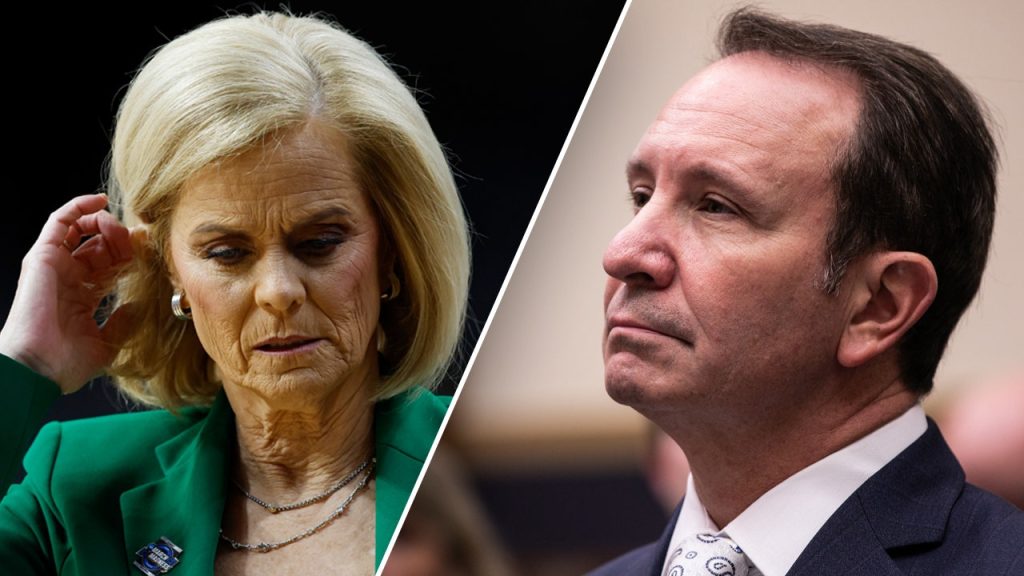Louisiana Gov. Jeff Landry has called for a policy that requires student-athletes to be present for the national anthem, following backlash against the LSU women’s basketball team for missing the anthem before a recent game against Iowa. The governor stressed the importance of showing respect for those who serve and unite under the flag, urging all college boards to implement a policy that athletes must be present for the anthem or risk losing their athletic scholarships. The LSU team’s absence during the anthem has sparked controversy and criticism, with many calling for adherence to traditions of respect and patriotism.
A video showed Iowa players holding hands during the national anthem while LSU had left the court before the anthem was played. Coach Kim Mulkey explained that their absence was part of their routine and that they weren’t aware when the anthem was played. It was revealed that neither USC nor UConn were present for the anthem before their Elite Eight game on the same night. LSU has not been present for the anthem throughout the season, including during last year’s national championship game. This consistent absence has drawn attention and raised questions about the team’s decisions regarding participating in pre-game ceremonies.
The controversy surrounding LSU’s absence during the national anthem highlights the ongoing debate over freedom of expression and patriotism in sports. While some argue that it is a matter of personal choice whether to participate in patriotic displays, others emphasize the importance of showing respect for national symbols and honoring those who serve and protect the country. Gov. Landry’s call for a policy requiring student-athletes to be present for the anthem reflects a broader sentiment of upholding traditions of patriotism and unity in the face of controversy and criticism.
The debate over athletes’ participation in the national anthem is not limited to LSU, as other teams have also been noted for their absence during pre-game ceremonies. The issue has become a topic of discussion in the sports community, with differing opinions on the importance of showing respect for the anthem and symbols of the nation. As the controversy continues to unfold, it raises questions about the role of sports in promoting unity and patriotism, and the responsibility of athletes to represent their country in a manner that reflects these values.
It is clear that the issue of student-athletes’ presence during the national anthem is a contentious and complex one, with arguments on both sides regarding personal freedom and respect for national symbols. Gov. Landry’s proposal for a policy requiring athletes to be present for the anthem underscores the importance of upholding traditions of patriotism and unity, particularly in the context of collegiate sports where athletes represent their schools and communities. As the debate continues to evolve, it remains to be seen how colleges and sports organizations will address the issue and balance the rights of individuals with the values of respect and unity that underpin national symbols like the anthem.
In conclusion, the controversy surrounding the LSU women’s basketball team’s absence during the national anthem has sparked a broader debate over athletes’ participation in pre-game ceremonies and respect for national symbols. Gov. Landry’s call for a policy requiring student-athletes to be present for the anthem reflects a commitment to upholding traditions of patriotism and unity, while also raising questions about the balance between personal freedom and collective responsibility in sports. As the issue continues to unfold, it highlights the complexities of navigating patriotism and free expression in the context of collegiate athletics, and prompts a deeper exploration of the values that underpin our national identity.


